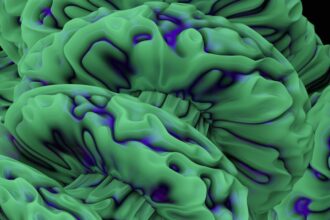Derealization and depersonalization are psychological phenomena that can leave you feeling detached from reality or your own self. When you experience derealization, the world around you may seem unreal, distorted, or dreamlike. You might find that familiar places appear strange, and everyday experiences feel surreal.
This disconnection can be unsettling, making it difficult for you to engage fully with your environment. On the other hand, depersonalization involves a sense of detachment from your own thoughts, feelings, or sense of identity. You may feel as though you are observing yourself from outside your body, leading to a profound sense of alienation.
These experiences can occur independently or together, often triggered by stress, trauma, or anxiety. While they can be temporary and situational, for some individuals, they may become chronic and significantly impact daily functioning. Understanding these phenomena is crucial for recognizing their effects on your mental health and well-being.
Key Takeaways
- Derealization is a feeling of detachment from the environment, while depersonalization is a sense of being detached from oneself.
- Symptoms of derealization and depersonalization include feeling like the world is unreal, feeling disconnected from one’s body, and experiencing emotional numbness.
- Causes of derealization and depersonalization can include trauma, stress, anxiety, and certain mental health conditions.
- Derealization and depersonalization can affect daily life by causing difficulties in concentration, memory, and emotional regulation.
- Diagnosing derealization and depersonalization involves a thorough evaluation of symptoms and ruling out other potential causes.
Symptoms of Derealization and Depersonalization
The symptoms of derealization and depersonalization can vary widely from person to person, but they often share common threads. If you are experiencing derealization, you might notice that your surroundings seem foggy or distant. Objects may appear distorted in size or shape, and sounds may seem muted or echoing.
You may feel as though you are living in a movie or a dream, where everything is just out of reach. This altered perception can lead to confusion and anxiety, as you struggle to reconcile your experiences with reality. In contrast, depersonalization symptoms often manifest as a disconnection from your own thoughts and emotions.
You might feel as if you are watching yourself from a distance, leading to a sense of unreality regarding your own identity. This can result in feelings of emptiness or numbness, making it challenging to connect with your emotions or understand your reactions to situations. Both derealization and depersonalization can lead to heightened anxiety and distress, as the individual grapples with the unsettling nature of their experiences.
Causes of Derealization and Depersonalization

The causes of derealization and depersonalization are complex and multifaceted.
For instance, if you have faced a traumatic incident such as an accident or loss, your mind may resort to these dissociative mechanisms as a coping strategy.
This response can serve as a protective measure, allowing you to distance yourself from overwhelming emotions or memories associated with the trauma. Additionally, anxiety disorders, depression, and other mental health conditions can contribute to the onset of derealization and depersonalization. When you are under chronic stress or experiencing intense anxiety, your brain may trigger these dissociative states as a way to manage overwhelming feelings.
Substance use can also play a role; certain drugs or alcohol can induce feelings of detachment or unreality. Understanding the underlying causes is essential for addressing these experiences effectively and finding appropriate treatment options.
How Derealization and Depersonalization Affect Daily Life
| Impact Area | Effects |
|---|---|
| Emotional Well-being | Feelings of detachment, emotional numbness, and difficulty connecting with others. |
| Physical Health | Increased stress, fatigue, and disrupted sleep patterns. |
| Work or School | Difficulty concentrating, decreased productivity, and impaired decision-making. |
| Relationships | Strained interpersonal relationships, feelings of isolation, and difficulty expressing emotions. |
| Everyday Activities | Impaired ability to enjoy hobbies, reduced motivation, and feelings of disconnection from reality. |
Living with derealization and depersonalization can significantly impact your daily life and overall functioning. You may find it challenging to concentrate on tasks at work or school due to the persistent feeling of detachment from reality. This can lead to difficulties in maintaining relationships, as friends and family may not understand what you are experiencing.
The sense of unreality can create barriers to emotional connection, making it hard for you to engage fully in social situations. Moreover, the constant state of anxiety that often accompanies these experiences can lead to avoidance behaviors. You might start avoiding situations that trigger feelings of derealization or depersonalization, which can further isolate you from friends and loved ones.
Over time, this avoidance can exacerbate feelings of loneliness and despair, creating a cycle that is difficult to break. Recognizing how these phenomena affect your daily life is crucial for seeking help and finding ways to cope effectively.
Diagnosing Derealization and Depersonalization
Diagnosing derealization and depersonalization typically involves a comprehensive evaluation by a mental health professional. If you suspect that you are experiencing these symptoms, it is essential to seek help from a qualified therapist or psychiatrist who can provide an accurate diagnosis. During the assessment process, the clinician will likely ask about your symptoms, their duration, and any potential triggers you have identified.
In some cases, the clinician may use standardized questionnaires or diagnostic criteria outlined in the Diagnostic and Statistical Manual of Mental Disorders (DSM-5) to determine whether you meet the criteria for depersonalization-derealization disorder. It is important to be open and honest during this evaluation process so that the clinician can understand your experiences fully. A proper diagnosis is the first step toward effective treatment and management of these challenging symptoms.
Treatment Options for Derealization and Depersonalization

Treatment options for derealization and depersonalization vary depending on the severity of your symptoms and their underlying causes. One common approach is psychotherapy, particularly cognitive-behavioral therapy (CBT). This therapeutic method focuses on identifying negative thought patterns and behaviors that contribute to your feelings of detachment.
Through CBT, you can learn coping strategies to manage anxiety and re-engage with reality. In some cases, medication may also be prescribed to help alleviate symptoms associated with anxiety or depression that may be contributing to your experiences of derealization and depersonalization. Antidepressants or anti-anxiety medications can help stabilize mood and reduce the intensity of symptoms.
It is essential to work closely with your healthcare provider to determine the most appropriate treatment plan tailored to your needs.
Coping Strategies for Derealization and Depersonalization
In addition to professional treatment options, there are several coping strategies you can employ to manage symptoms of derealization and depersonalization in your daily life. Mindfulness practices can be particularly beneficial; engaging in mindfulness meditation or grounding exercises can help anchor you in the present moment. Focusing on your breath or paying attention to physical sensations can create a sense of connection with reality.
Establishing a routine can also provide structure and stability in your life, helping you feel more grounded amidst feelings of detachment. Engaging in physical activities such as exercise or yoga can promote overall well-being while reducing anxiety levels. Additionally, journaling about your experiences can serve as an outlet for processing emotions and gaining insight into triggers that may lead to episodes of derealization or depersonalization.
Understanding the Connection Between Derealization, Depersonalization, and Mental Health
Derealization and depersonalization are often intertwined with various mental health conditions, making it essential to understand their connection. For many individuals, these experiences serve as coping mechanisms in response to overwhelming stressors or trauma. They may manifest alongside anxiety disorders, post-traumatic stress disorder (PTSD), or depression, highlighting the importance of addressing underlying mental health issues.
Recognizing this connection allows for a more holistic approach to treatment. By addressing not only the symptoms of derealization and depersonalization but also the underlying mental health concerns contributing to them, you can work toward achieving greater emotional stability and resilience. This comprehensive understanding fosters a more compassionate perspective on your experiences while encouraging proactive steps toward healing.
The Impact of Derealization and Depersonalization on Relationships
The effects of derealization and depersonalization extend beyond individual experiences; they can significantly impact relationships with friends, family, and romantic partners. When you feel detached from yourself or your surroundings, it becomes challenging to connect authentically with others. You may find it difficult to express your emotions or engage in meaningful conversations, leading to misunderstandings or feelings of isolation.
Moreover, loved ones may struggle to comprehend what you are going through if they have not experienced similar feelings themselves. This lack of understanding can create distance in relationships, leaving you feeling unsupported during difficult times. Open communication about your experiences is vital; sharing your feelings with those close to you can foster empathy and strengthen connections despite the challenges posed by derealization and depersonalization.
How to Support Someone with Derealization and Depersonalization
If someone close to you is experiencing derealization or depersonalization, offering support can make a significant difference in their journey toward healing. Start by creating a safe space for open dialogue; encourage them to share their feelings without judgment. Listening actively and validating their experiences can help them feel understood and less alone in their struggles.
Additionally, educate yourself about derealization and depersonalization so that you can better comprehend what they are going through. This knowledge will enable you to provide informed support while avoiding common misconceptions about these phenomena. Encourage them to seek professional help if they haven’t already; sometimes, knowing that someone cares enough to suggest therapy can be a powerful motivator for seeking assistance.
Take the Quiz: Do You Experience Derealization or Depersonalization?
If you suspect that you might be experiencing derealization or depersonalization but are unsure about your symptoms, consider taking a self-assessment quiz designed for this purpose. These quizzes typically consist of questions related to your experiences of detachment from reality or self-awareness over a specific period. While they cannot replace professional diagnosis or treatment, they can provide valuable insight into whether your experiences align with common symptoms associated with these phenomena.
After completing the quiz, reflect on your results honestly; if they indicate that you may be experiencing derealization or depersonalization, it’s essential to seek help from a mental health professional who can guide you through understanding these experiences further. Remember that reaching out for support is a courageous step toward reclaiming your sense of self and reality.
If you’re exploring the complexities of derealization and depersonalization, you might find it helpful to take a quiz to better understand your experiences. For further reading on these topics, you can visit an insightful article on the subject at Unplugged Psych. This resource offers a deeper dive into the symptoms and coping strategies associated with these dissociative experiences, providing valuable information for those seeking to learn more about their mental health.
LEARN MORE About Unmasking the Mysteries Behind Depersonalization and Derealization
FAQs
What is derealization and depersonalization?
Derealization is a mental health condition where a person feels detached from their surroundings, as if the world around them is unreal or distorted. Depersonalization is a similar condition where a person feels detached from themselves, as if they are observing their own thoughts, feelings, and actions from a distance.
What are the symptoms of derealization and depersonalization?
Symptoms of derealization and depersonalization may include feeling like the world is foggy or dreamlike, feeling disconnected from one’s body or thoughts, experiencing emotional numbness, and feeling like one’s actions are not their own.
What causes derealization and depersonalization?
Derealization and depersonalization can be caused by various factors, including trauma, stress, anxiety, depression, substance abuse, and certain mental health disorders.
How are derealization and depersonalization diagnosed?
Derealization and depersonalization are diagnosed based on a person’s reported symptoms and experiences. A mental health professional may conduct a thorough assessment to rule out other potential causes and to determine the appropriate diagnosis.
How are derealization and depersonalization treated?
Treatment for derealization and depersonalization may include therapy, medication, stress management techniques, and addressing any underlying mental health conditions. It is important for individuals to seek professional help for an accurate diagnosis and personalized treatment plan.




